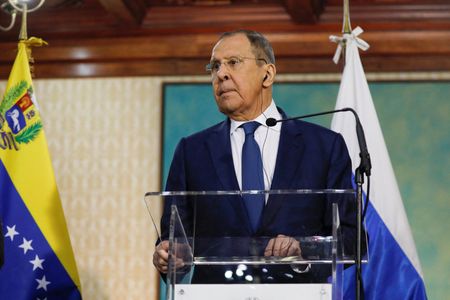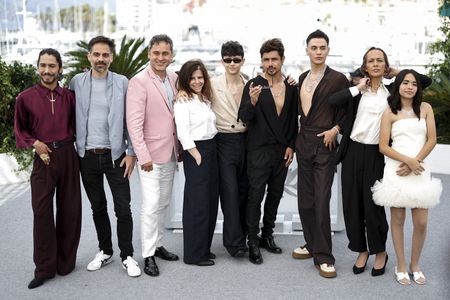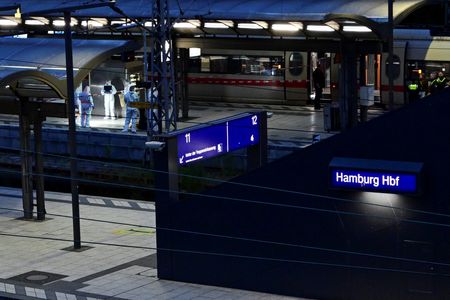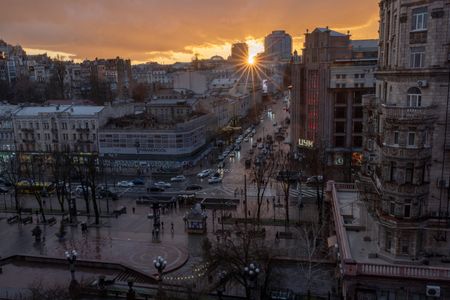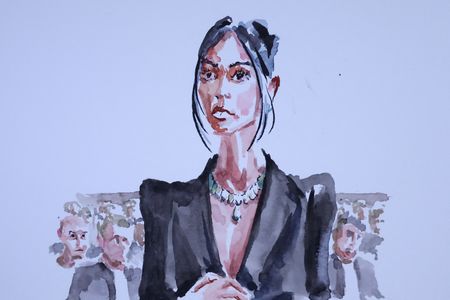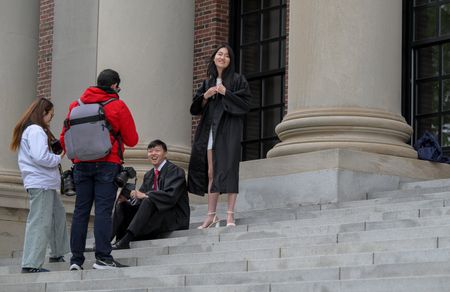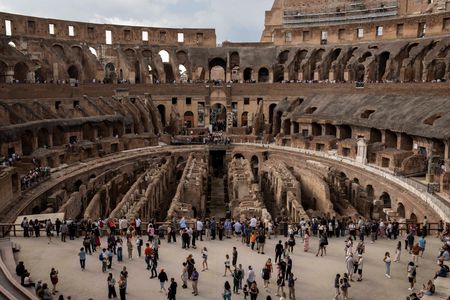By Dmitry Antonov
MOSCOW (Reuters) -Russian Foreign Minister Sergei Lavrov cast doubt on Friday over the Vatican as a potential location for peace talks between Russia and Ukraine, saying that the Holy See itself would find it uncomfortable to host two mainly Orthodox Christian nations.
Italian Prime Minister Giorgia Meloni said on Tuesday that Pope Leo XIV had confirmed his willingness to host talks during a phone call with her. The Vatican press office declined to comment further.
Pope Leo, the first U.S.-born pontiff, said soon after his election this month that the Vatican could act as a mediator in global conflicts, without specifically mentioning Russia and Ukraine.
Lavrov, speaking at the Diplomatic Academy in Moscow, on Friday played down the idea of the Vatican as the next venue and the Kremlin said there was not yet any agreement on where a new round of talks would take place.
“Many people are fantasising about when and where it (the meeting) will take place. We don’t have any ideas right now,” said Lavrov.
“But imagine the Vatican as a venue for negotiations. It would be a bit inelegant for Orthodox countries to use a Catholic platform to discuss issues on how to remove the root causes (of the conflict).
“I think it would not be very comfortable for the Vatican itself to host delegations from two Orthodox countries in these circumstances,” Lavrov added.
Ukrainian and Russian negotiators held their first direct talks in more than three years earlier this month in Istanbul.
DISCRIMINATION
Lavrov also said that Moscow would not allow Russian-speakers in Ukraine to remain under the rule of what he called a “junta” led by Ukrainian President Volodymyr Zelenskiy.
It would be a “crime” for Russia to allow this to happen, he said, adding that the simplest way to settle the conflict would be for the international community to demand that Ukraine cancel what he said were laws discriminating against Russian-speakers.
Kyiv denies any such discrimination.
Lavrov reiterated an earlier Russian idea that it would be good if presidential elections were held in Ukraine so that Moscow could sign an eventual peace deal with someone widely regarded as legitimate.
Zelenskiy has dismissed the Russian-backed idea that he is not legitimate as propaganda. Elections were not held when his five-year term in office technically expired in May 2024 because Ukraine remained – and remains – under martial law, which suspends the normal election cycle.
Zelenskiy and the West say it is necessary to suspend normal political rules at a time of war and that the Kremlin, given Russia’s own tightly-controlled political system, is in no position to criticise.
(Reporting by Dmitry Antonov; Writing by Andrew OsbornEditing by Gareth Jones)

